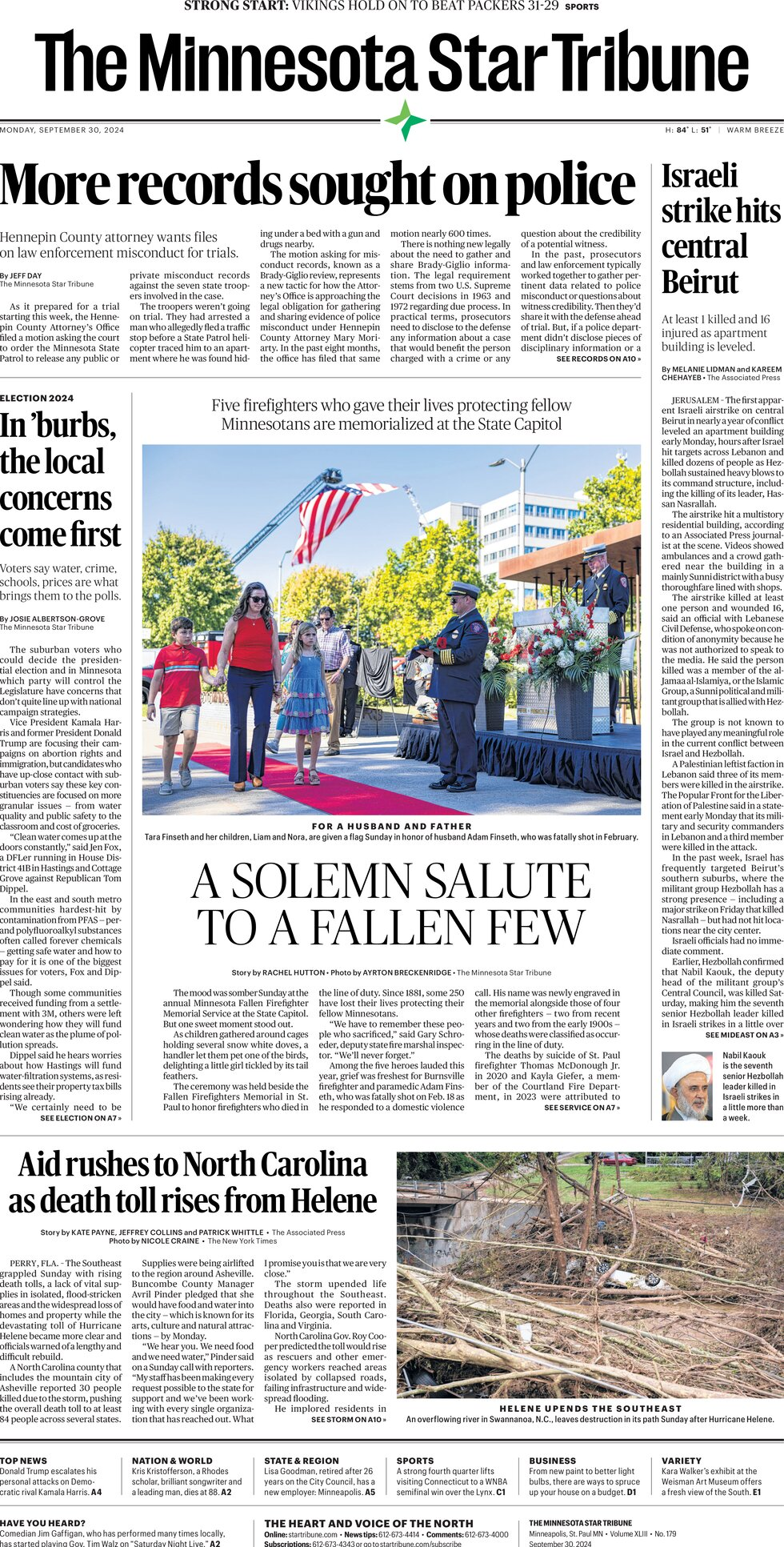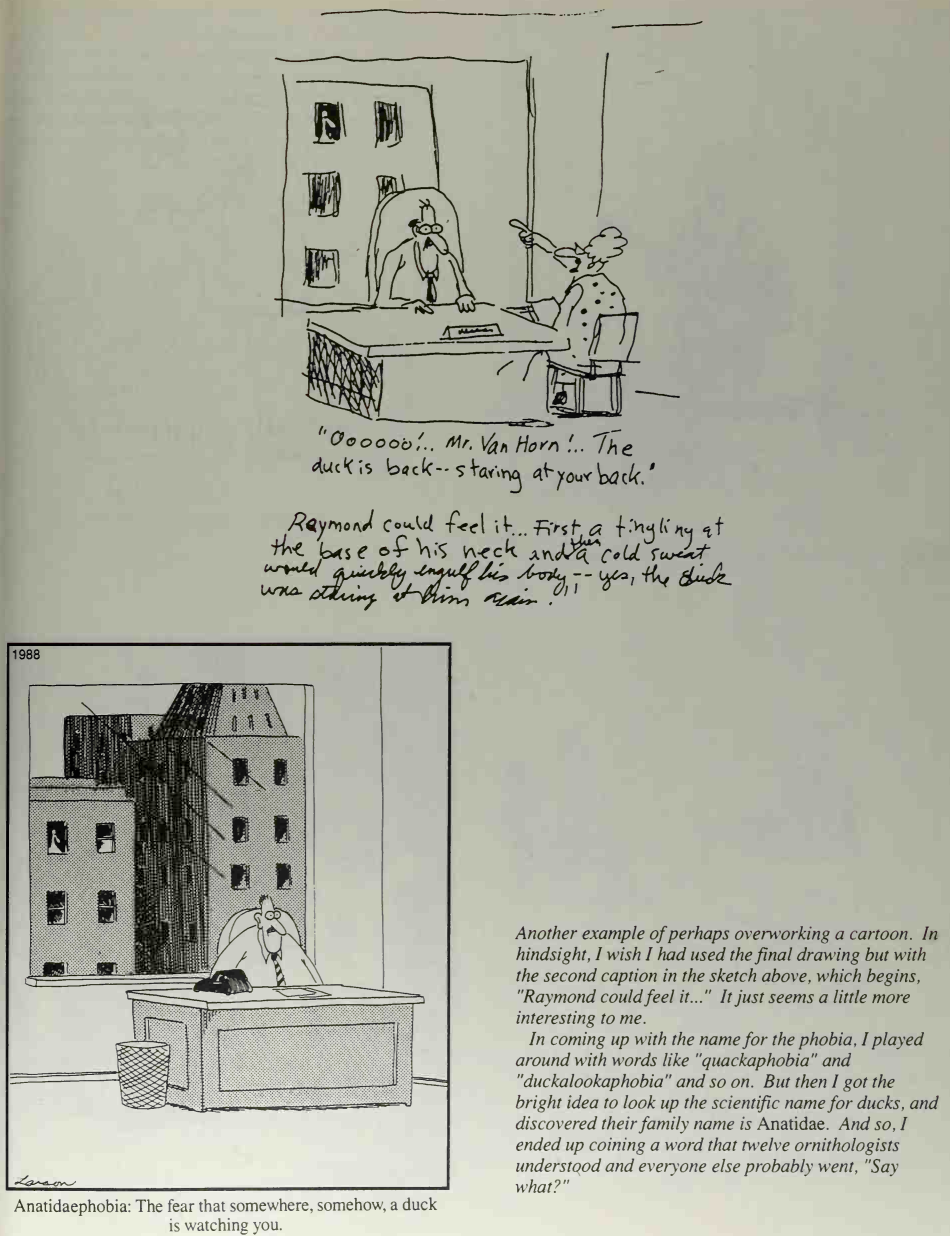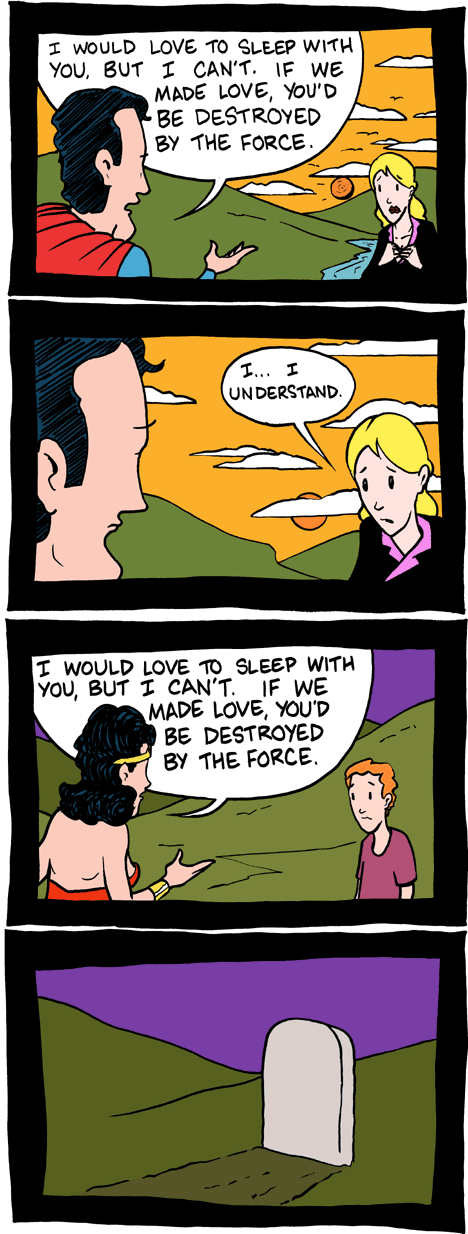 m_f
Now
•
100%
m_f
Now
•
100%
Yeah, if you can afford it and think of like that, that's cool
 m_f
Now
•
100%
m_f
Now
•
100%
Yeah, that was an embarrassment. I just talked to someone from Australia who brought up the shooting that started these after they found out I'm from Minnesota. I'd like to say that we got better, but there have been a few minor incidents since
 m_f
Now
•
100%
m_f
Now
•
100%
Hope it passes! I'm kind of meh on the whole idea of the lottery as a tax on poor people that are bad at math, but given that it exists, I'd rather the money be used for stuff like this.
On a related note, it'd be nice if laws generally had built-in expiration dates like this. Not all laws, but lots of them should probably require people to say "yeah, this is still good and relevant"
 m_f
Now
•
80%
m_f
Now
•
80%
They're also working with browser developers to push htmx into web standards, so that hopefully soon you won't even need htmx/JS/etc, it'll just be what your browser does by default
 m_f
Now
•
84%
m_f
Now
•
84%
A lot of the web is powered by JS, but much less of it needs to be. Here's a couple of sites that are part of a trend to not unnecessarily introduce it:
The negative implications for Google requiring JS is that they will use it to track everything possible about you that they can, even down to how you move your cursor, or how much battery you have left on your phone in order to jack up prices, or any other number of shitty things.
 m_f
Now
•
100%
m_f
Now
•
100%
King is playing a much less challenging game of Spot, which, yes, is about dogs, with an older man named Richard, whose white beard and flopped red cap are suitably Dungeon Master-y. King describes him as something of a local legend and folks try to guess how many games he has at home. We’re all too low; he reportedly has 7,000.
I've been in Richard's basement before. I think the board games are a structural part of his house at this point, you keep looking around and seeing more games the longer you look
> Over the past two years, the Democratic-Farmer-Labor Party’s legislative accomplishments have earned Minnesota widespread acclaim, and launched Gov. Tim Walz to the national stage. > > How can we assess the recent spate of progressive accomplishments passed by the Minnesota Legislature? > > One way is through the lens of abundance. In recent years, some writers and policy wonks have been developing this framework to think about the policy challenges that we face today. > > New York Times columnist Ezra Klein has been one leader of this movement, writing and podcasting about our need to develop “a liberalism that builds.” > > One primary focus: the legal and political roadblocks to building the stuff that we need, whether that’s housing, green energy, or transportation infrastructure. Over the past few decades, we’ve developed hyper-localized approval processes and various legal hurdles — introducing many opportunities to say “no” to a project — to protect people from destructive new construction that can wreck the environment and harm vulnerable people. However, in a time when we desperately need to build things, like more housing and green infrastructure, and bad-faith opponents are contorting the laws for their own ends, the rules require reexamination. > > This reformist approach is entirely compatible with other more longstanding progressive economic goals, such as using public resources to improve the lives of lower-income people and address climate change — indeed, as commentators like Klein argue, without building more we actually can’t sufficiently tackle these issues. > > In recent years, Minnesota policymakers can point to some clear successes in addressing the challenges that preclude abundance. But there remain areas for improvement. > > Take the recent environmental lawsuit against the Minneapolis 2040 Comprehensive Plan. Minneapolis’s much-lauded plan has received extensive recognition for allowing new housing development across the city and thereby keeping rent prices relatively low and stable. An environmental lawsuit temporarily blocked these changes in 2022, claiming that Minneapolis hadn’t completed the requisite environmental review (nevermind that increased urban housing density is quite beneficial for the environment). > > This is a typical example of the policy challenges that the abundance agenda aims to solve: well-intentioned environmental laws, which have often been used to stop bad things from getting built, can also be used to stop good things from being built. > > In 2024, the Minnesota Legislature passed a bill to stop the lawsuit, explicitly stating that comprehensive plans in the metro could not be subjected to environmental reviews (although individual housing developments remain subject to review). This effort to remove a procedural barrier was led by some environmental advocates, with strong support from allies focused on housing affordability. > > This is not the only recent example of Minnesota policymakers supporting the physical construction of new things. This year, the state passed an environmental permitting bill to help ease the path for new clean electric infrastructure. Without it, slow, cumbersome permitting of energy projects could significantly hamper Minnesota’s ability to reach carbon-free electricity by 2040. > > Minnesota’s permitting reform bill aims to simplify and speed up the process for approving new clean energy projects (it also directly echoes clean energy permitting reform debates currently active in Congress). Much like with housing: Rules aimed to protect against harmful projects can make it too difficult to build essential clean energy projects. > > Indeed, Walz even briefly spoke to this policy framing as a guest on Klein’s podcast in July, giving a quote nicely encapsulating this perspective: “We have good environmental laws in Minnesota, and that’s how it should be — we’re protectors of 20% of the world’s [fresh] water. But we also have permitting that takes too long and prohibits, or makes more expensive, doing renewable energy projects, things that we want to get done. I think that same thing applies on housing — that we put up barriers to making it more affordable.” > > These policy changes are a necessary tool as we deal with dysfunctional infrastructure, too-high cost of living, and climate change. > > To be sure, the state has not comprehensively solved these types of challenges — for example, restrictive suburban land use rules continue to block affordable housing, and we’ll have to wait and see just how effectively this first strike at permitting reform can enable a green energy buildout. > > In addition to hammering out the right policy reforms, Minnesota also needs to continue improving its state capacity if the North Star State is to achieve abundance. > > All too often, our government institutions struggle to successfully implement the policies that we want to see. As Minnesota Reformer columnist Eric Bernstein wrote recently, countless government functions are outsourced to private consultants and nonprofits, diminishing our ability to effectively implement programs and widening the door for fraud or costly errors. Nowadays, Bernstein wrote, even the government consultants are managed and audited by consultants. > > This creates a host of problems, including for an abundance-focused agenda. > > Consider the Southwest Light Rail Train to the suburbs of Minneapolis, one of Minnesota’s most glaring examples of a liberalism that’s unable to build. As a horribly delayed and over-budget transit project, it’s emblematic of the challenges that the public sector faces when it tries to build things. Our government simply doesn’t have the necessary capacity to achieve our aspirations. Years after the Green Line’s failures became evident, Minnesota policymakers are still struggling to enact a coherent governance reform for future light rail projects. > > Minnesota is hardly an outlier — similar problems plague state and local governments across the country. Minnesota has its state capacity wins, too, though effective government execution is often more difficult to spot than failed execution. See, for example, the Minneapolis Public Housing Authority’s new homes for families, built using innovative construction techniques; or the state’s recently created Climate Innovation Finance Authority, which is currently developing a plan to assist with crucial financing for clean energy projects. > > But ultimately, growing our state capacity is a more difficult endeavor than removing excessive regulatory policies. Capacity building will take decades, and we will likely see many more public sector stumbles in the future. But improved state capacity will be an equally important pursuit for a liberalism that builds. > > Leaders in our state have shown an interest in improving our government to embody a liberalism that builds, which will address some of our most pressing issues around affordability and climate change. We’ve made steps in the right direction regarding legal and regulatory issues, and our government capacity. But continuing to pursue continued improvements is essential to keeping the Minnesota Miracle alive.
 m_f
Now
•
100%
m_f
Now
•
100%
That sucks. I agree with this guy:
Three commissioners voted no, including Tom Olsen.
“If these other organizations so badly want this area fenced off, they should do it themselves. We don't have to be the ones implementing this, because our constituents do not want it, and it is indeed really important ground jewel of our park system,” Olsen said.
 m_f
Now
•
100%
m_f
Now
•
100%
Some background on this comic:

I wonder why the caption in this one has been changed. Gary Larson doesn't seem like he'd request that
 m_f
Now
•
100%
m_f
Now
•
100%
Could very well be a mobile thing. I was pretty annoyed recently when logging into gcal for work on my phone, it refused to let me sign in without giving them my cell phone number. When I switched to wifi, it stopped bugging me, so clearly they pay attention to that sort of signal.
 m_f
Now
•
95%
m_f
Now
•
95%
Sometimes, yeah. My default is DDG, and I also use Kagi, but Google is still good at some stuff. Guess I'll take the hit and just stop using it completely though. Kagi has been good enough, and also lets me search the fediverse for finding that dank meme I saw last week. Google used to be able to do that, but can't shove as many ads in those queries I assume, so they dropped that ability.

Just started getting this now. Hopefully it's some A/B testing that they'll stop doing, but I'm not holding my breath
 m_f
Now
•
100%
m_f
Now
•
100%
It's nice to read a fact check that isn't "everything he said is not even wrong, it's just verbal diarrhea". I'll take someone this wrong over pet-eating bullshit any day:
He has said in interviews and during other speaking engagements that he was in China during the massacre. He was not. He traveled there later that year.
He used to claim he’d been there “about 30” or “dozens” of times, but after APM Reports and MPR News questioned how that was possible, his campaign acknowledged the real number of trips from the U.S. to China was “closer to 15.”
 m_f
Now
•
100%
m_f
Now
•
100%
Time to go yell at the city council 📣
 m_f
Now
•
100%
m_f
Now
•
100%
Yeah, I noticed that. I wonder if they're A/B testing on the website, because I saw a physical paper with a much more neutral headline of "More records sought on police"

 m_f
Now
•
100%
m_f
Now
•
100%
Jeff Potts, the executive director of the Minnesota Chief of Police Association, said Moriarty’s positioning stands in contrast with other counties in the state and how law enforcement worked with Hennepin County in the past.
“I would say that it’s probably indicative of the relationship that she is creating with the police chiefs,” Potts said. “Most other county attorneys are doing this in a way that is probably equally effective. However, their style is more cooperative and collaborative. This county attorney has chosen to use court orders to obtain information.”

 m_f
Now
•
100%
m_f
Now
•
100%
Thanks for posting this! Great idea, feel free to post more like it 🙂
 m_f
Now
•
100%
m_f
Now
•
100%
Nice! I read your comment before trying to guess, so can't cheat and make my own guess. In retrospect, I can pick out details that help make out where this is. I should try geoguessr, I've heard it's pretty fun
 m_f
Now
•
100%
m_f
Now
•
100%
Nice! I hadn't heard of RiverFirst (which handled Hall's Island) before, but I like it:
Before Minneapolis was the “city of lakes,” we were a river city.
Now open in 2021, two new RiverFirst projects – Water Works at Mill Ruins Park and the Overlook at 26th Ave N. RiverFirst is a vision for transforming 11 miles of once-industrial Mississippi Riverfront as it flows through the heart of Minneapolis into a welcoming place for all people through improved habitat and miles of new interconnected parks and trails.
 m_f
Now
•
100%
m_f
Now
•
100%
In some southern Minnesota counties, hogs outnumber humans by a factor of 40 to 1.
Let's give them voting rights
 racketmn.com
racketmn.com
> **Our Streets' I-94 Removal Dream Advances** > > "What if we... converted a big chunk of I-94?" a March Flyover headline asked. Well, incredibly, we might actually get to find out. > > Back in March, a coalition of transportation advocacy orgs had just released an 84-page report (which you can read in full here) on the feasibility of conducting a "highway-to-boulevard conversion" on the 7.5-mile stretch of I-94 between downtown Minneapolis and St. Paul. It was the latest in MnDOT's ongoing "Rethinking I-94" project, which kicked off in 2016 and seeks to reconnect the neighborhoods decimated by the highway's construction in the mid-1900s. > > This Thursday, writes Sahan Journal's Andrew Hazzard, Minneapolis City Council unanimously approved a resolution that strongly opposes any expansion of I-94 in Minneapolis. In fact, the resolution reads, City Council "supports a wide variety of highway removal options in the upcoming Rethinking I-94 scoping decision document, including the addition of a 'restored network' alternative with fewer lanes, which would maximize the potential to repurpose highway land for new public housing, affordable commercial space, parks, community gardens, or other uses determined by surrounding communities." > > Don't bust out the shovels and champagne just yet: As Hazzard writes, construction is likely years away, and no funding has been secured for any of this at the moment. Still, pretty cool to see a governing body take such an ambitious proposal seriously rather than dismissing it outright. And for all you pie-in-the-sky naysayers: There's already a successful urban highway removal project in Rochester, New York, and a similar proposal in Oakland, California, appears to be gaining steam. > > **Report: Payroll Fraud Rampant in MN** > > Nearly 1 in 10 workers are misclassified as independent contractors, according to a report from think tank North Star Policy Action. “Based on that analysis, the group estimates workers lost between $2.9 billion and $6.2 billion in 2019,” writes Max Nesterak in his weekly labor blog for Minnesota Reformer. And they're not just losing regular income either. Victims often miss out on things like healthcare, retirement contributions, overtime, paid time off, and workers’ comp as a result of misclassification. > > The report also found that companies who commit this type of fraud often face little or no consequence. The Minnesota Department of Revenue has gotten involved in at least one high-profile case. In 2020, Minnesota United’s video crew complained that they had been misclassified as independent contractors, and a few years later the team’s scoreboard operators would unionize over similar issues. > > We’ll end our blurb on this mind-boggling stat: “10,073 cars were stolen in Minnesota in 2017, compared to 316,000 people who experienced wage theft,” researcher Aaron Rosenthal told the Attorney General’s task force. So, if you work in the private sector, you’re three times more likely to experience employer theft than car theft. > > **Mall Installs Shot-Detecting Tech** > > The Mall of America is now using shot detection tech, WCCO reports, with $1 million toward the system kicked in by the city of Bloomington. AmberBox, the tech vendor, says it can notify authorities in less than four seconds after a shot and pinpoint the shots from within 60 feet. > > The city's police chief, Booker Hodges, says the technology will help "apprehend criminals sooner than if it had not been used"—in other words, it's not gonna do a whole lot to keep a gun from getting shot in the first place. Plus, for all their societal faults, guns already do a pretty great job letting know they've been shot via their famously loud gunshots. > > The MOA, you may recall, has already started using facial recognition, a technology that tends to have built-in racist flaws. "We have an incredibly unique property, which is why we're taking an industry leading approach to protecting it," says a mall spokesperson. I’m sure they meant to say “our visitors” rather than “it,” right? > > **Extra! Extra! Paid Brand Influencer Piles Praise on Strib Rebrand** > > As the Star Tribune Media Co. rushed through a brand refresh this year, we had multiple questions: How much did it cost? Is it a conflict of interest that Colle McVoy, the ad firm headed by current Strib board chair Christine Fruechte, won the job? And does Stribby, the paper’s brand-new grey duck mascot, possess his species’ anatomically correct corkscrew dick? The Strib’s PR man wouldn’t get into specifics about the first two, and we smartly didn’t pose the last one. > > Last week the freshly minted *Minnesota* Star Tribune received more effusive feedback via The Brand Blueprint, which appears to be a “brand + marketing strategy insight” TikTok influencer account with 39,000+ followers. Its NYC-based founder, Brooke Yoakam, uses an "omnichannel platform" approach boosted by AI to "[help] consumer brands unlock customers to spend." (Typing that sequence of jargon took years off my life.) And she loves what the Minnesota Star Tribune is cookin', no doubt in part because the TikTok post is “in partnership with the Minnesota Star Tribune.” > > "One of the most interesting rebrands just happened,” she begins in peak TikTok-voice. "It might not seem like that big of a rebrand but it's actually huge. So they added Minnesota to the name because the goal of the rebrand is to cover news across the whole state of Minnesota." Wow, huge if true! Yoakam goes on to praise the symbology of the star logo (four points representing covering all four corners of Minnesota, though commenters point out the state has several additional corners) and the indented “i” (apparently a callback to the old logo). The Stribby mascot is “really great for marketing and Gen Z,” we learn. Her video has been viewed almost 1 million times; the top-voted comment (“Can I read the articles for free though?") isn’t exactly a marketing win. > > Add “How much did this shit cost and could it have been spent on reporting?” to our list of armchair Strib executive Qs. (On a much brighter note, the company did just hire one of the state’s very best reporters, the Minnesota Reformer’s Deena Winter.) Oh, and to the anonymous Strib tipster who keeps emailing Racket newsroom dirt without any ability to reply? Let us email you back! These things require two-way streets.
 racketmn.com
racketmn.com
https://archive.is/Nqofs
 www.mprnews.org
www.mprnews.org
IMO a pretty fair look [Also published in Minnesota Reformer](https://minnesotareformer.com/2024/09/19/emails-reveal-how-walz-struggled-to-deal-with-unrest-reach-consensus-with-critics-after-police-killings/)
 www.startribune.com
www.startribune.com
This confirms all of my stereotypes about Hugo: > “I don’t want to not allow solar farms, but you don’t want to ruin a neighborhood’s character,” City Council Member David Strub said in an interview. “We’re all trying to be good neighbors.” They also don't like public transit because of reasons that boil down to not liking minorities. That's probably why [Bob Kroll](https://en.wikipedia.org/wiki/Bob_Kroll_(police_officer)) lives there, who was the president of the Minneapolis police union during the George Floyd protests. https://archive.is/XOAdo

Saw this today in a parking lot. Not sure exactly what it's trying to say, but thought it was funny
 Now
Now











